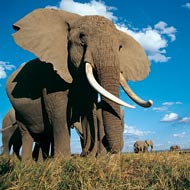Wildlife rangers lacking government support at 'greater risk'

“The growing influence of organised criminal networks means governments must rapidly professionalise their ranger force”
Wildlife rangers believe they are unprotected by a lack of training, equipment and support from their governments, a study revealed. In battling the ongoing illegal poaching trade, the task of protecting wildlife leaves many rangers injured or dead each year.
Released last week at the World Ranger Congress in Colorado, the WWF study surveyed 570 rangers across 12 African countries. Eighty-two per cent faced a life-threatening situation on duty, but 59 per cent felt ill equipped on the front line. Forty-two per cent felt insufficiently trained and therefore less effective and unsafe. The results echoed similar studies into working conditions for rangers in Asia and Latin America.
“The growing influence of organised criminal networks means governments must rapidly professionalise their ranger force”, said Elisabeth McLellan, WWF head, Wildlife Crime Initiative.
Despite being at significant risk in the line of duty, working conditions are inadequate, and in many cases, requirements such as footwear, shelter and water supplies are not currently being met, raising the issue of employment conditions.
The survey also revealed 47 per cent of rangers felt that they had a poor work/life balance, with little time with their families. Low and irregular pay was also cited as one of the worst aspects of their job.
“It is critical that we have a well supported, skilled and motivated ranger corps in order to reduce the risk to rangers and their families,” said Chris Galliers, chairman of the Game Rangers Association of Africa.



 The BSAVA has opened submissions for the BSAVA Clinical Research Abstracts 2026.
The BSAVA has opened submissions for the BSAVA Clinical Research Abstracts 2026.